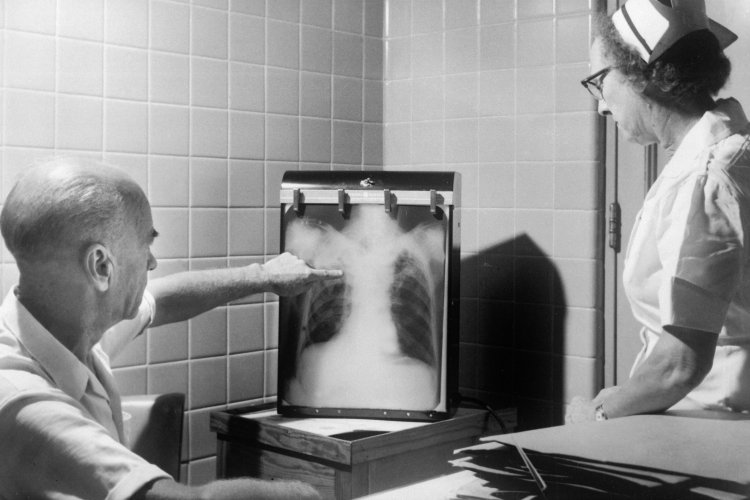Beijing Blues: An Expat Shares His Experience with Depression
Editor's note: In the wake of actor Robin Williams' death, we thought it appropriate to present information on resources for dealing with depression and thoughts of suicide for residents of Beijing.There is always help available. Please refer to the numbers included with the healthcare providers listed at the end of this post.
At some point on an expat’s journey, it’s not at all uncommon to fall victim to a bout of the “Beijing blues.” The onset of depression symptoms can occur suddenly, with many reporting feelings of loneliness, sadness, and feeling like they no longer fit in or have the ability to connect with others as they did in their home country.
Seasonal Affective Disorder (SAD) is a subset of depression in which the sufferer experiences recurring depressive symptoms with seasonal patterns often peaking in winter. Symptoms may include sleep irregularities, irritability, and extreme fatigue. The emotional and physical stress of adjusting to a foreign environment is often the root of the problem for expats in Beijing.
Depression is most prevalent among female trailing spouses and teens. Trailing spouses whose husbands may spend significant time traveling often say their relationships suffer because of difficulty with communication and a lack of support.
But men are also not immune to depression or SAD; in some particular cases, the cause of depression may be self-inflicted. We speak with Dr. Rolle and Marriage and Family Therapist Aram Sohigian, and one long-term Beijing expat about his battle with depression.
Hitting Rock Bottom
James Phillips (not his real name) is no stranger to the debilitating effects of depression. After living in Beijing for eight years, the father of two was depressed for almost six months last year after his affair led his wife to move back to their home country, leaving in secret with their children. “It all started one night when I just came home and my family wasn’t there. I didn’t know what to do anymore. It felt like the whole world had crashed in on me,” he says.
Phillips’ symptoms began with mood swings and eventually led to withdrawal from friends and social activities. “I’d feel so happy at work because I had to put up this face like everything was OK. It was like being two different people. But then I’d get home and I just didn’t know what to do. I’d just cry.”
Feelings of hopelessness eventually led to distrust in friends. “I thought everyone was talking behind my back about what happened.
You know, you have this perfect family and saying how I just destroyed it. I thought everyone was saying I was a bad dad. It just all hit me.”
Similarly, depression and SAD sufferers also experience feelings of helplessness, though specific symptoms will differ according to the individual and circumstances. “I have seen a lot of people who are worn out and hopeless because of the weather and smog here,” says Sohigian. “It can affect someone who has never had an issue with depression.”
Dr. Rolle explains many of her patients also report mood shifts and severe difficulty coping with daily activities when the AQI is high. That being said, family history is most telling of whether depression symptoms will arise. “For those who may have a family history of depression, the expat environment may only heighten the inevitable occurrence,” she says.
Identifying the difference between depression and SAD can be difficult because many of the symptoms are the same. According to Sohigian, SAD is specifically linked to seasonal change while depression is primarily a disorder caused by distorted thoughts. Some of these distortions include jumping to conclusions, self-blame as well as blaming others for depressed feelings, and black-and-white thinking. In addition, SAD symptoms are usually experienced at the same time(s) of year for at least two years; in the summer months, SAD is often more similar to anxiety than depression.
Adults, children, and teens experience similar symptoms with SAD or depression, though adults generally tend to have more coping strategies. “Children and teens may withdraw or become angrier than most adults because they don’t know how to deal with the issue,” says Sohigian. “They may also become less playful and less willing to go on trips. Teens may spend more time in their rooms alone, not want to be around their friends, or even stop talking to their friends back home. Grades may start dropping and they may start using alcohol or drugs to relieve the pain they are feeling. Teens may also start cutting as a way to deal with the feelings they can’t express.”
With severe cases of depression, adults can also have thoughts of self-harm. Though Phillips never had such thoughts, he knew it was time to seek help after he fell while rock climbing. “It felt good. I actually liked the pain,” he says. “There was something really wrong about that and that’s when I realized maybe I should talk to someone.”
The First Step
Phillips reluctantly visited a therapist referred to him by a friend, though he found opening up very difficult at first. “For me, it’s not the kind of thing we do, [talking] about your really deep personal issues.” He continued to see his therapist, however, and throughout his nine sessions, he began his own research about depression and was able to start the healing process.
Despite his initial hesitation, by the last few visits Phillips started opening up. “I started spilling, though it was really hard for me. I remember in one of our last visits [my therapist] said, ‘Wow, now I know you. This is you.’”
It can be difficult for some people to talk about their personal problems, but doing so is crucial to the recovery process. “The stigmas often tied to taking better care of our emotional and mental health needs must be dismantled, as early intervention is the next best thing to prevention,” says Dr. Rolle. She stresses that emotional well-being is just as important as physical well-being.
Sohigian encourages parents seeking treatment for their children to realize that many people get depressed and therapy offers a chance for patients to learn more skills for dealing with depression and becoming a stronger person. “Remind them of times they’ve shown strength and resiliency,” he says.
Dr. Rolle says that unconditional love and encouragement for family members experiencing depression or SAD is a must, as well as seeking professional help for them as soon as possible. “Take whatever steps necessary,” she says. “You don’t have to suffer silently.”
For Phillips, getting help was key. “A lot of the things [the therapist] said, I already knew, but it’s so different when it comes from someone else. They put things in another perspective for you – that’s what I appreciate the most, the nuggets of wisdom.”
Almost a year later, Phillips feels like his old self again and is able to talk about his experience openly. “Having a therapist did help, but I also think it’s a 50/50 effort. I had to do more than just get up and go to a psychologist; I also had to make the personal choice to want to be over this depression. I also made the decision to be involved in positive things again, doing things in the community and eventually going back and doing all the things I loved doing.”
Many hospitals, clinics, and private practice therapists in Beijing have a range of experienced clinicians with diverse backgrounds who can help with individual and family therapy. Psychological assessments are also a tool to help more clearly diagnose and treat depression, SAD, and other mental illnesses. English-speaking support groups as well as doctors and counselors with experience dealing with a particular group are great resources for the expat community.
“If someone wants to get help, it is definitely here in Beijing,” says Sohigian. He uses Cognitive Behavioral Therapy (CBT) methods with his patients instead of more traditional talk therapy approaches. Therapists who use CBT select specific strategies to help patients cope with their issues. “It is like learning a new language and you can learn to use it very quickly if you work at it. You don’t have to be in pain and feel alone. There is support out there – you just have to ask for it.”
Resources
Eliott’s Corner 胡宝小屋
This multidisciplinary pediatric therapy center has three licensed clinical psychologists with expertise dealing with children’s issues, including depression.
Mon- Fri 9am-6pm, Unit 19-05, Block 2, Kandu International, No. 10 North East 4th Ring Road, Chaoyang District (6461 6283, 13511006282, contact@oliviasplace.org) www.oliviasplace.org 朝阳区东四环北路10号 瞰都国际2号楼19-05室 (东风北桥东北角)
Small Steps Coaching
Classes are designed for enhanced personal growth and self-awareness. Two-hour sessions cover topics such as using emotions for personal growth and making major decisions while keeping mind-body-emotions in balance. Small groups and one-on-one sessions available only.
Sat 3-5pm. 44 Qian Yongkang Hutong (near Lama Temple), Dongcheng District (6416 6125, dalida@small-steps-coaching.com) www.coachingdiaries.com 东城区前永康胡同44号(近雍和宫)
International SOS Beijing Clinic 北京国际救援中心
SOS has doctors and therapists with experience working with men, women, and teens including Clinical Health Psychologist Dr. Stephen-Claude Hyat, Dr. Beverly Rolle, and Marriage and Family Therapist Aram Sohigian.
Mon-Fri 9am-6pm, Sat-Sun 9am-6pm. Suite 105, Wing 1, Kunsha Building, 16 Xinyuanli, Chaoyang District. (Clinic: 6462 9112, 24hr hotline 6462 9100, china.inquiries@internationalsos.com) www.clinicsinchina.com 朝阳区新源里16号琨莎中心一座105室
This article originally appeared in the beijingkids Health Guide 2014. To get your free copy, email distribution@truerun.com or view it online at Issuu.
Photo: Kelly B (Flickr)
Related stories :
Comments
New comments are displayed first.Comments
![]() mtnerror
Submitted by Guest on Wed, 08/20/2014 - 13:40 Permalink
mtnerror
Submitted by Guest on Wed, 08/20/2014 - 13:40 Permalink
Re: Beijing Blues: An Expat Shares His Experience with...
Sorry, Mr. Phillips, but the problem didn't start when you noticed your wife had left with the 2 kids. But glad you've begun the process of introspection under professional guidance.
Validate your mobile phone number to post comments.







